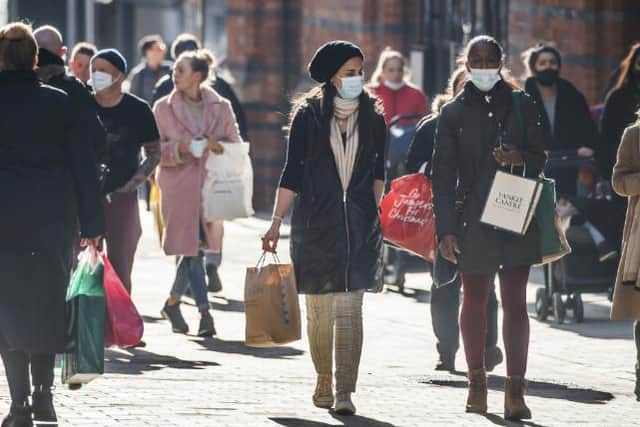University of Leeds experts identify ‘six profiles’ of different responses to Covid
and live on Freeview channel 276
So-called “profiles” have been identified by social scientists at the University of Leeds based on their perception of risk, shared attitudes, values and experiences of the virus.
Researchers claim that while most people were found to be following guidance, others do not understand it, do not trust it, or ignore it completely – meaning that official messaging is not reaching a significant minority of people across the country.
Advertisement
Hide AdAdvertisement
Hide AdDr Stephen Coleman is a professor of political communication at the University of Leeds, and led the research. He says there is no “one-size-fits-all” message that can be effectively addressed to the entire public – and that government and local authorities should consider the differences between the groups when putting out messaging.


He said: “One in five people are not interested in government messages, while one in three says they could not make sense of it. A large number of people were not sure whether they could trust it, while one in ten people admitted to not complying with advice.
“There are some people who are individualist who need to be persuaded that wearing a mask and social distancing is good for themselves, while other people are more community-minded and need to know it is good for other people.
“But some people are fatalistic and think ‘we can’t do anything so what can we do about it?’.
Advertisement
Hide AdAdvertisement
Hide Ad“You have got a lot of different people and you need a lot of different messages. Don’t assume that one message is fitting everyone.
“We have to remember that it is less than a year since we had even heard of this pandemic. Usually it takes years to get these large campaigns off the ground – such as AIDS or road safety – you need to bring home the seriousness of it.”
So what are the six groups?
“Individualist risk-takers” are, says the study, mainly under 44 and live in London, politically left-leaning, and have seen the highest number of positive cases.
The study claims this group represents 12 percent of the population, and whose values lead them to reject imposed regulations.
Advertisement
Hide AdAdvertisement
Hide AdIt adds: “They are overwhelmingly confident they can stay safe, despite high exposure to risks through work – but are much more likely than any other group to have engaged in high-risk behaviour such as car sharing or staying overnight with a romantic partner. They know their actions are often inconsistent with official advice.”
“Non-information-seeking sceptics” are, according to the study, mostly aged 18-34, semi-skilled workers or students and politically centrist.
It claims this group believes the risks posed by the pandemic are exaggerated and are sceptical about official guidance, and that half choose to avoid it, feeling overwhelmed by too much information.
“Information-seeking rule-followers” are, the report says, mostly over-55, Conservative-voting and live outside London.
Advertisement
Hide AdAdvertisement
Hide AdIt adds that they tend to feel they are in control of their lives but see Covid as a direct personal threat. They seek updates wherever they can find them and tend to trust official advice and follow the rules.
The “complacently confident” are, the report outlines, mostly middle aged, live outside London and are “very right wing”.
It adds that they want to “make up their own minds and follow their own rules” about the pandemic, avoiding COVID-19 updates and very few have seen advice from politicians or scientists, often saying they don’t trust it.
It adds: “They tend not to know people who have had COVID-19 or feel particularly vulnerable to the virus themselves. They are overwhelmingly confident of staying safe.
Advertisement
Hide AdAdvertisement
Hide Ad“This group is less interested in how to tackle the problem than whether there is a problem – and a third do not see the point of wearing a face mask.”
“Information-seeking critics” are usually over 25, live outside London, politically left wing and are likely to suffer with anxiety or depression.
It adds these are among the most concerned about the pandemic’s risks and are unlikely to engage in risky behaviour, with 93 percent wearing a mask.
They stay updated, mainly following scientists – as they find government guidance insufficient and hard to comprehend or trust.
Advertisement
Hide AdAdvertisement
Hide AdThe “Experientially risk-averse” are mostly aged over 45, live outside London, with nearly half suffering from an acute long term health condition.
This group represents, the study claims, 12 percent of the population. Members have come into close contact with the virus, which has scared them into taking official advice very seriously.
Most either know someone who has contracted Covid and a quarter know someone who has died. Many live with someone who is very vulnerable to infection.